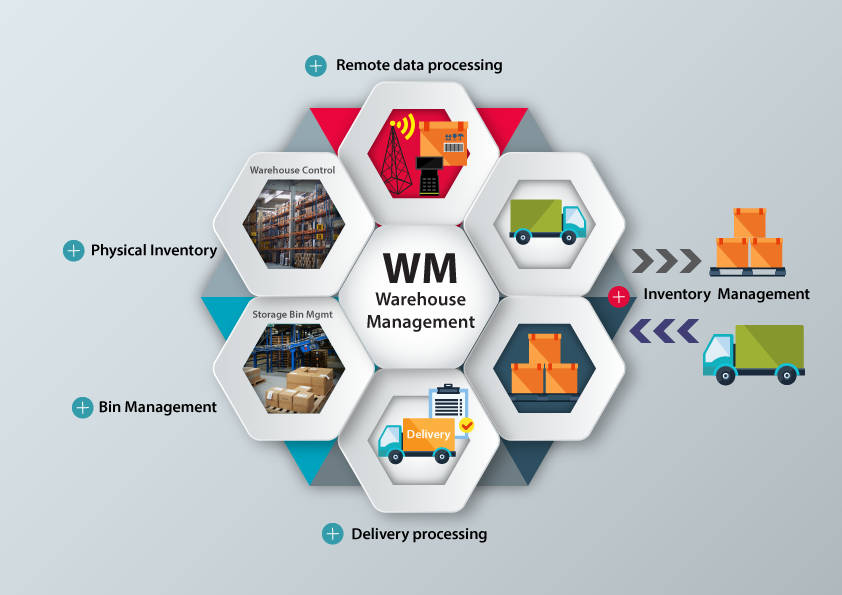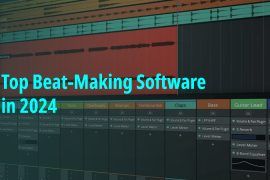The sequencing of delivery routes and mileage computations between stops are referred to as route planning. Many fleets are contemplating software-based alternatives, such as simple route optimization, dynamic route planning, or fully autonomous dispatch and routing, as competitive pressures increase and cost-effective cloud-based solutions become more tempting. Route Planning Software automates processes that were formerly performed by dispatchers using pen and paper, resulting in a more simplified and efficient routing process. Machine learning and artificial intelligence are frequently used in route planning software to collect data from the past and use it to improve and develop future routing methods.
Table of Contents
What are the Benefits of Route Planning Software?

Route Planning software allows teams to analyze multiple scenarios to determine the impact of different fleet management techniques, such as lowering cars or drivers, or modifying vehicle configuration, in addition to planning.
The majority of routing software supports the following three routing strategies:
- Static – routes are scheduled on a quarterly or monthly basis.
- New routes are built on a daily basis, making the system dynamic.
- Real-time Dynamic — routes alter during the delivery day as conditions on the ground change and new orders enter the system.
Fleet managers can use route planning software to plan vehicles’ itineraries ahead of time and reroute them in real-time if necessary. Minimizing unplanned stops, improving fuel efficiency, and avoiding disruptions in customer service, helps to bring considerable increases in productivity and reliability.
Why do Fleets Need Route Planning Software?
Irrespective of the size of your business, Managing a fleet of commercial cars is a difficult and costly task. Not only are the prices high, but the schedule can also be prone to major disruptions. This, in turn, can have major consequences for customer service standards; fleets whose deliveries consistently fail to arrive on time due to disruption will struggle to keep customers. Route planning software for small businesses as well as large businesses has been widely embraced in the fleet sector and has become something of an industry-standard in recent years since it allows managers to stay on top of such issues and address them with minimal effort.
However, choosing a Route Planning Software for your business can often be an overwhelming task.
Our experience says, whenever in a dilemma 9ne should always weigh all the options, compare and thus come to a conclusion. Hence, here is a comprehensive list of Top 10 Route Planning Software to your rescue! So that you can make the best decision for your enterprise.
Top 10 Route Planning Software
Opityol
For improved service and cheaper costs, Optiyol optimizes city logistics. With state-of-the-art machine learning and optimization algorithms, the solutions both automate and optimize transportation planning decisions. Due to e-commerce and urbanization, the amount of residential last-mile operations are expanding. When compared to commercial deliveries, order quantities are smaller, demand volume is highly unpredictable, and the list of addresses changes every day.
Maxoptra
Maxoptra is a fleet management program that optimizes routes. The tool attempts to save customers money while also lowering carbon dioxide emissions. It provides dynamic route optimization for customized routes that considers traffic conditions, known roadworks, vehicle capacities, live order volumes, and delivery time windows. The system even reacts to changes in these parameters in real-time. The Maxoptra Driver App allows drivers to report job statuses and receive new orders in real-time. Users can track vehicle locations in real-time while planning multi-drop routes for maximum efficiency. Maxoptra can then notify users proactively if delivery ETAs vary, and redirect cars in real-time if problems arise.
Integration with 30 different in-vehicle tracking technologies is supported, and customers can utilize the given API to integrate Maxoptra with their own in-vehicle tracking technology.
SmartRoutes
Smart Routes is a flexible route optimization tool that helps you provide a fantastic delivery experience to your consumers by delivering services on time. It allows you to plan your routes more easily and send dispatches to your drivers’ phones, saving you time, money, and effort. You may gain complete visibility into delivery ETAs, time periods, and expected prices with Smart Routes. Based on time frames, load balance, and vehicle limits, you can optimize your route and define criteria for cars and drivers. It has a sophisticated smartphone app that allows you to obtain proof of delivery and communicate with the depo via driver remarks and dispatch. You can see your delivery fleet on a live map and manage and change routes in real-time.
StreamGo
StreamGo is a tool for managing routes in order to improve business outcomes. The software includes facilities for scanning barcodes, which may be used to track every item and create a digital audit trail. Use email and SMS to engage users in two-way communication. To develop your KPI reporting in Excel, you must first measure the performance of your data. It is compatible with Android and iOS mobile devices. The program is used by distributors, as well as small and medium businesses.
LogiNext Mile
LogiNext Mile is a last-mile delivery and dispatch management software that is highly flexible. For all distribution models, including single pick-multiple drop and multiple pick-multiple drop algorithms, software for resource capacity, delivery route design, and route optimization is available. Re-routing in real-time, delivery route optimization, and updated Estimated Time of Arrival (ETAs) in response to changing conditions. Heat maps, trend lines, and planned vs. real SLA comparisons are used in interactive dashboards to analyze the entire delivery network.
Routific
Routific is a cloud-based delivery route planning and optimization service that helps small and medium-sized enterprises increase fleet capacity, save money on gasoline, and follow driver progress in real-time. For more than a decade, the route optimization method has been in development. Routific helps customers complete more stops per route and minimize their cost-per-delivery. Even if your routes alter at the last minute, delivery tracking tools and customer notifications keep things orderly and stress-free.
OptimoRoute
OptimoRoute is a powerful route optimization software platform that allows you to plan your day in real-time and optimize your route for optimal efficiency. It enables you to easily import hundreds of orders and immediately receive the most efficient routes and timetables for your drivers. You can use OptimoRoute to find the optimal routes and timetables while keeping all order and job requirements in mind, such as skills matching, date range, priority, variable work durations, time slots, reverse logistics orders, weekday, and more. You can increase the number of orders processed while cutting costs by taking into account any process constraints. You can find out where your drivers are and when they’ll arrive at each location. To avoid working overtime and save money.
Locus DispatchIQ
Locus DispatchIQ is a route planning software that assists shipping companies and other enterprises that transport goods in optimizing delivery routes and schedules. To automate difficult supply chain choices, the software employs machine learning and proprietary algorithms. The solution requires extremely little human intellect to carry out its functions well, thanks to its AI-backed route planning. The allocation of orders in Locus Dispatcher is based on their priority, as well as other restrictions that distinguish orders that cannot be delivered together. A proprietary geocoding engine is included in the software, which distills and translates even the most confusing addresses into accurate geographic coordinates. A proprietary geocoding engine is included in the software, which distills and translates even the most confusing addresses into accurate geographic coordinates. It aids users in the optimal handling of on-demand orders as well as the rerouting of scheduled orders as needed, which aids in on-demand dispatch planning. Users can also receive automatic vehicle suggestions based on traffic, volume, shipment, vehicle type, stop durations, delivery schedules, and other factors.
WorkWave Route Manager
Locus DispatchIQ is a route planning software that assists shipping companies and other enterprises that transport goods in optimizing delivery routes and schedules. To automate difficult supply chain choices, the software employs machine learning and proprietary algorithms. The solution requires extremely little human intellect to carry out its functions well, thanks to its AI-backed route planning. The allocation of orders in Locus Dispatcher is based on their priority, as well as other restrictions that distinguish orders that cannot be delivered together. A proprietary geocoding engine is included in the software, which distills and translates even the most confusing addresses into accurate geographic coordinates.
RouteXL
RouteXL is a multi-stop route planner for multi-destination road excursions. By decreasing travel time, RouteXL optimizes the order of stopovers for the quickest itinerary. For people who need to visit numerous sites in one day, such as pickups, deliveries, and on-site services, route optimization can assist in saving time and money. Emissions are reduced, which is good for the environment. RouteXL is intended to be simple to use and provide a positive user experience. Most office software may be imported and exported with it.
Conclusion
As previously said, dynamic route planning allows fleet managers to determine which vehicles are available and where they are at any given time. This means that these vehicles can be guided to where they’re required the most, and reassigned to a different duty if it’s deemed more appropriate (if, for example, another vehicle is out of action or caught in traffic). This can take into account a variety of relevant parameters, such as customer time frames and driver working hours.
Solutions that enable organizations to observe the location and status of distant resources and adjust operations in the field quickly through the use of connected devices are examples of fleet management technology. For more information on Route Planning Software head to SaaSworthy!
Read More
Top 7 Natural Language Processing Software in 2022
A Comprehensive Guide to Low-Code Development (LCDP) Software for 2022






